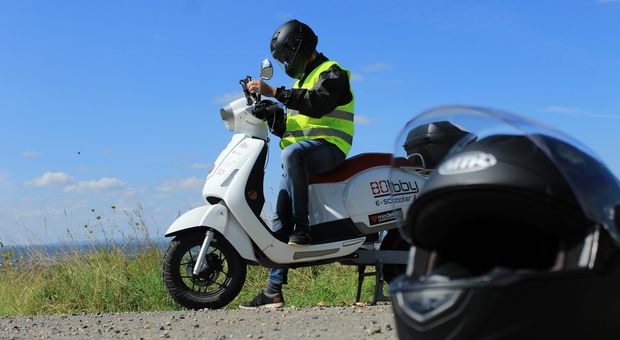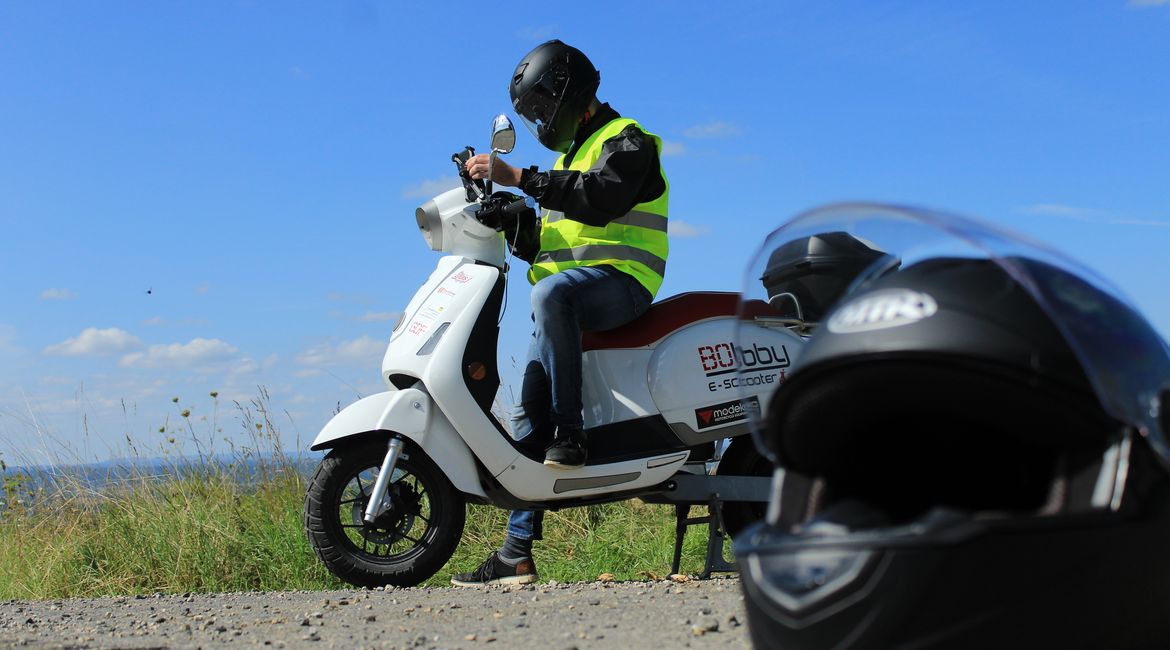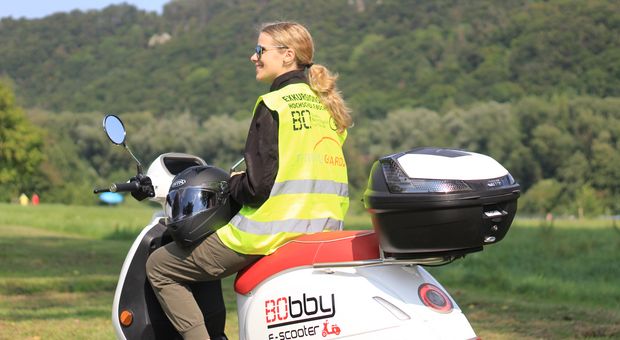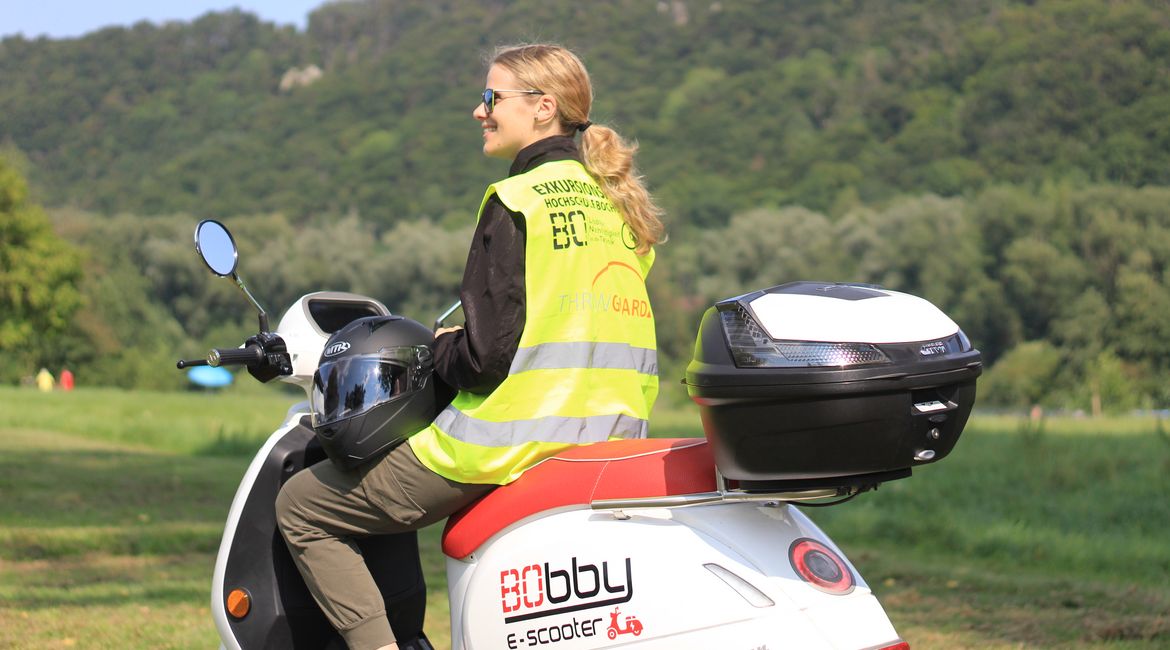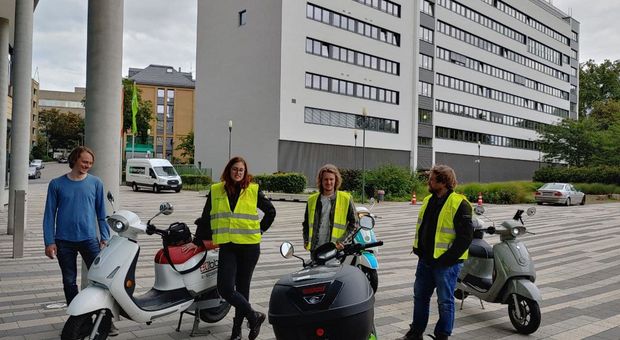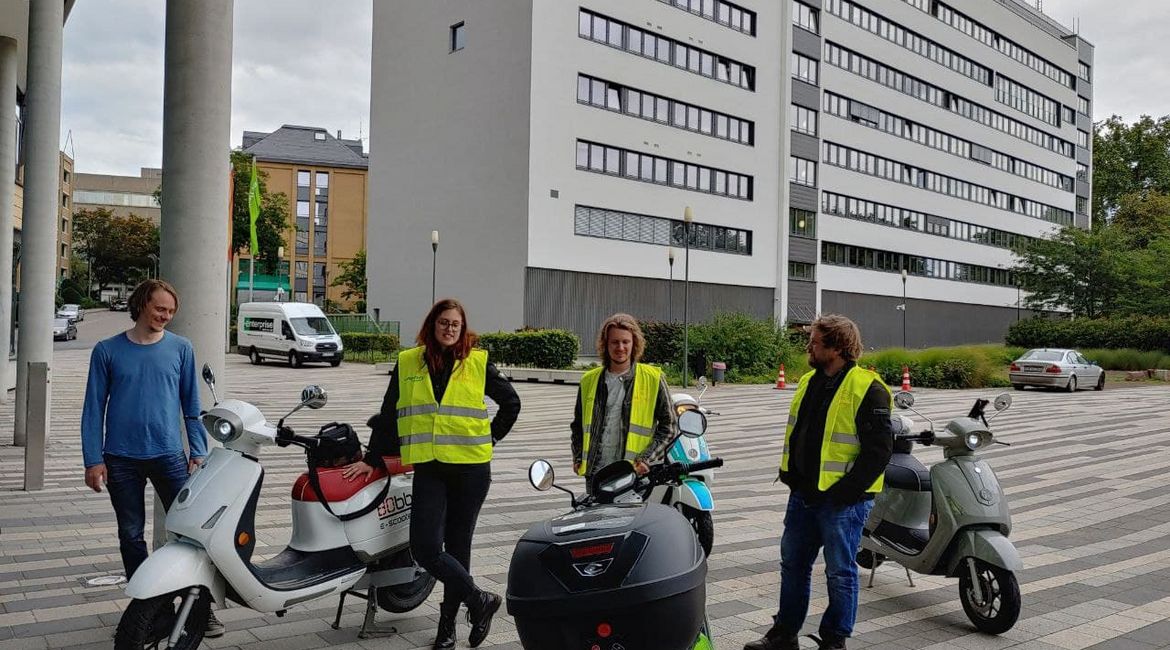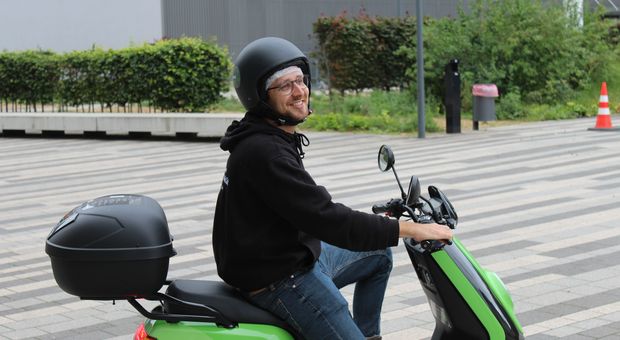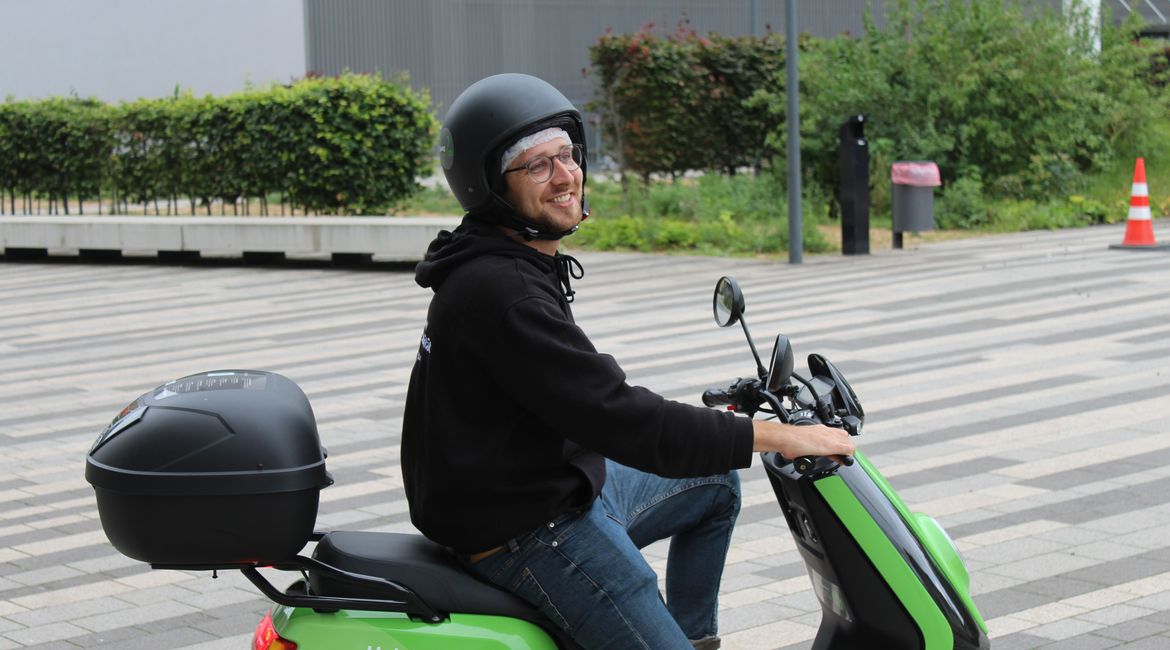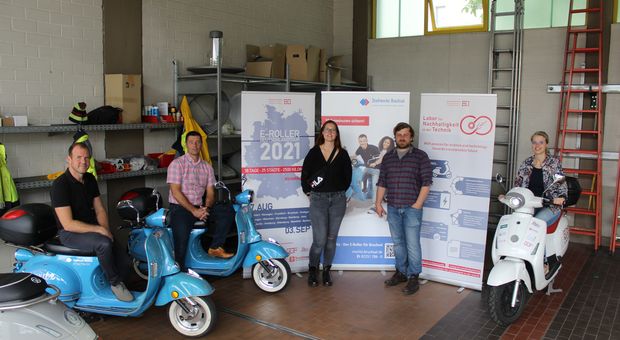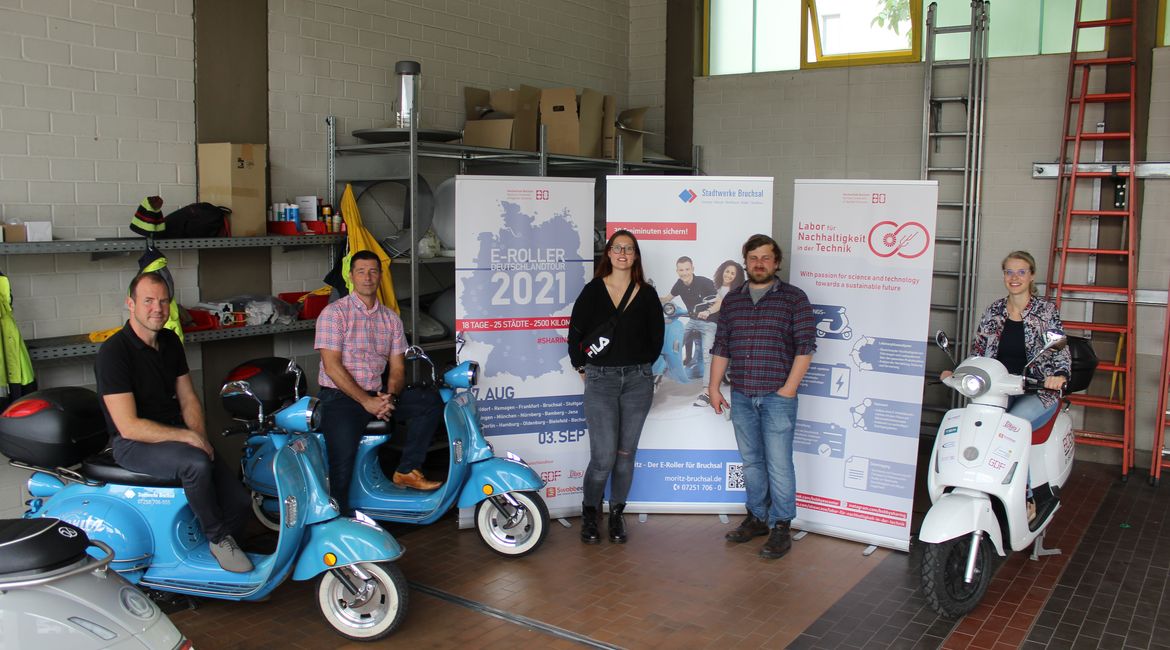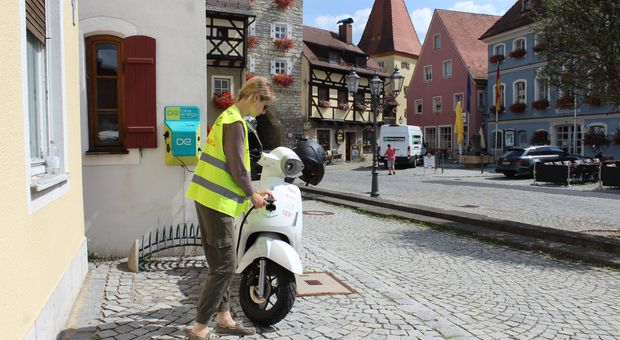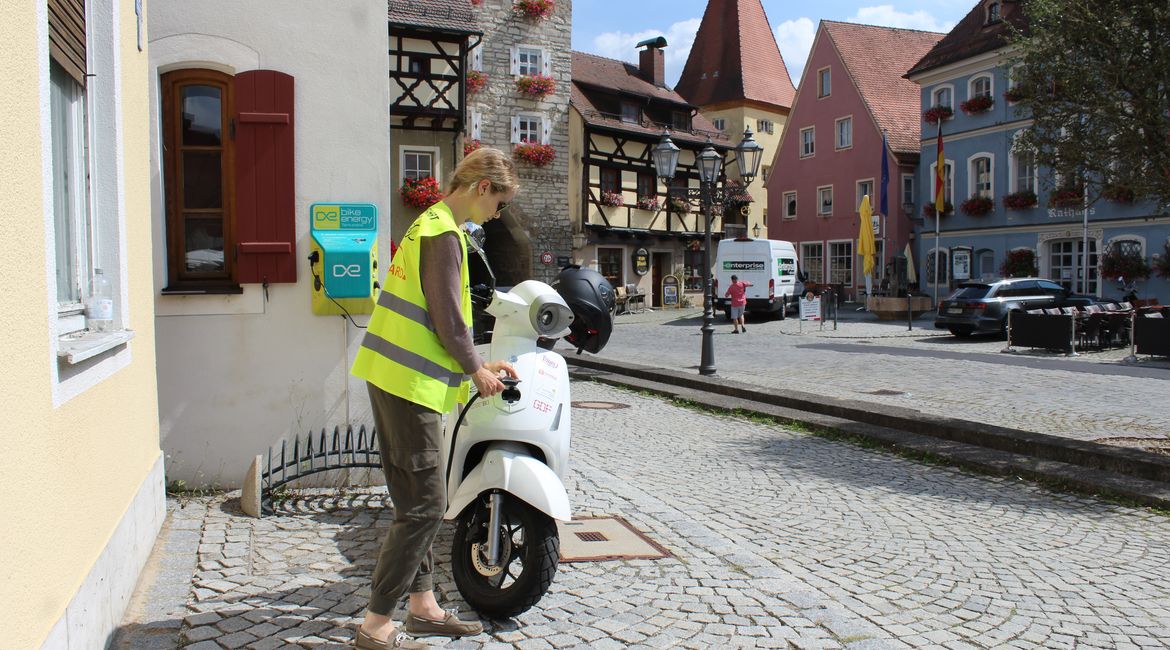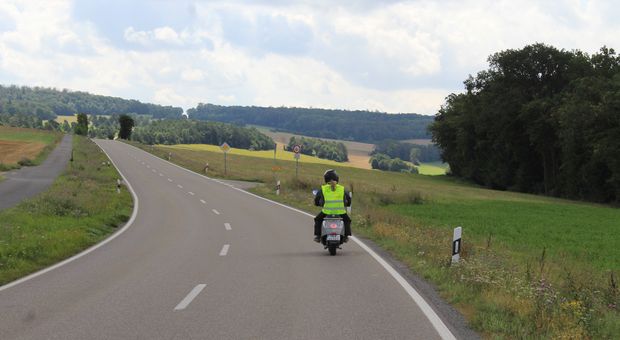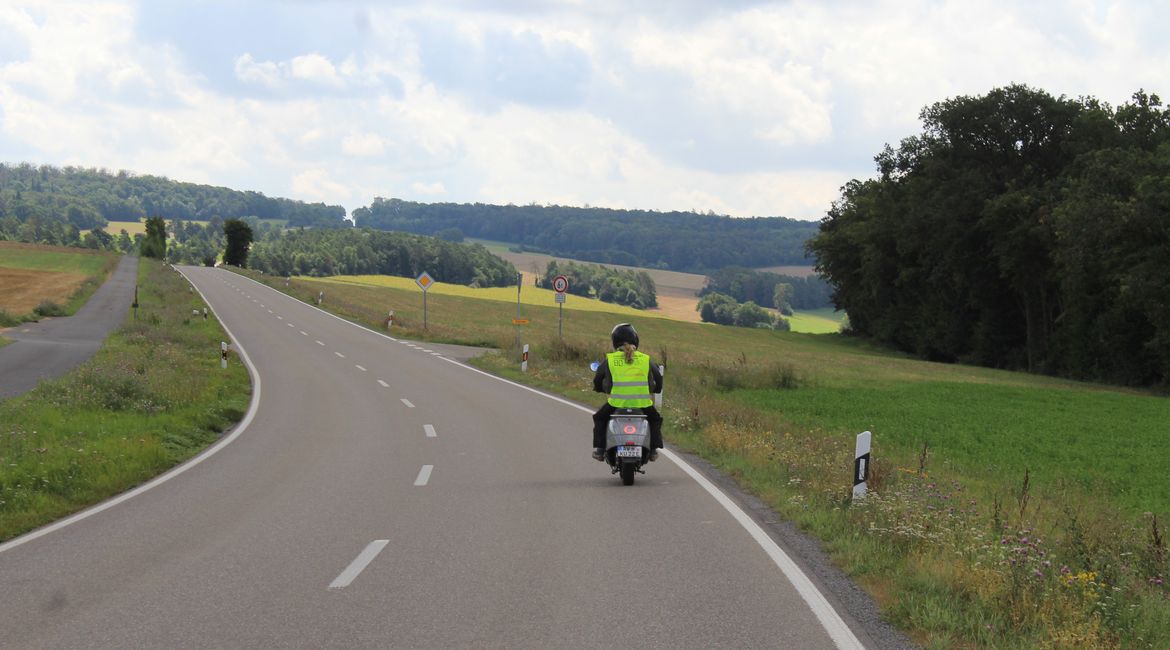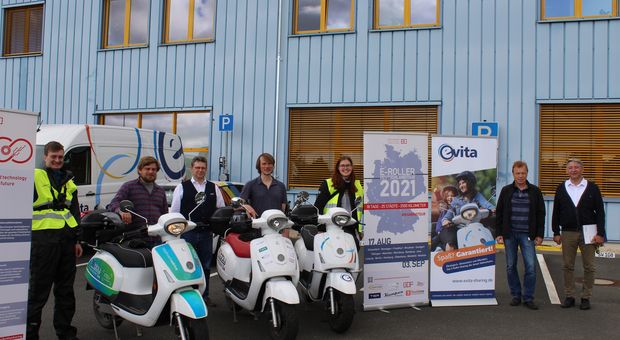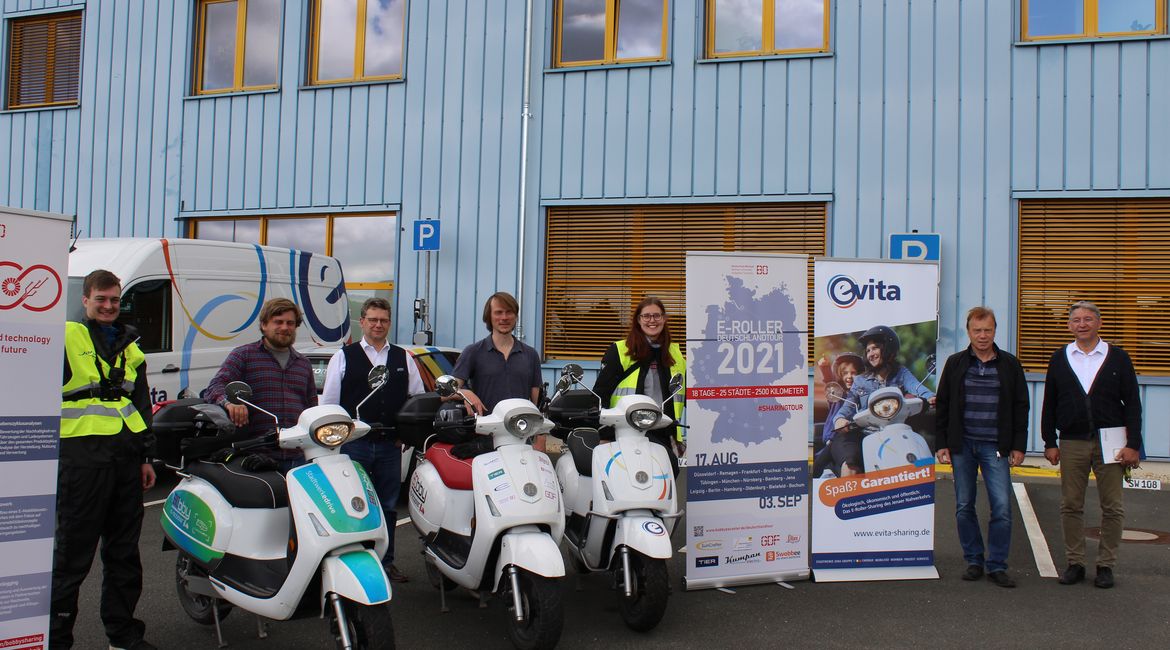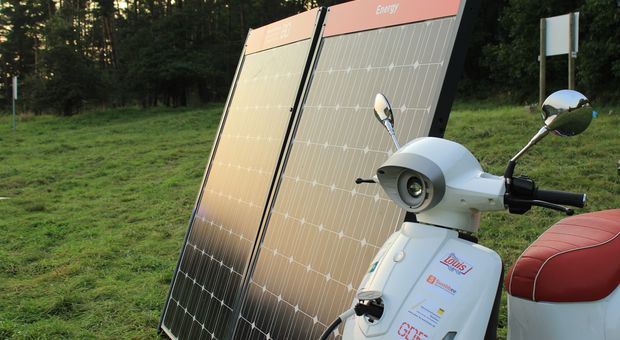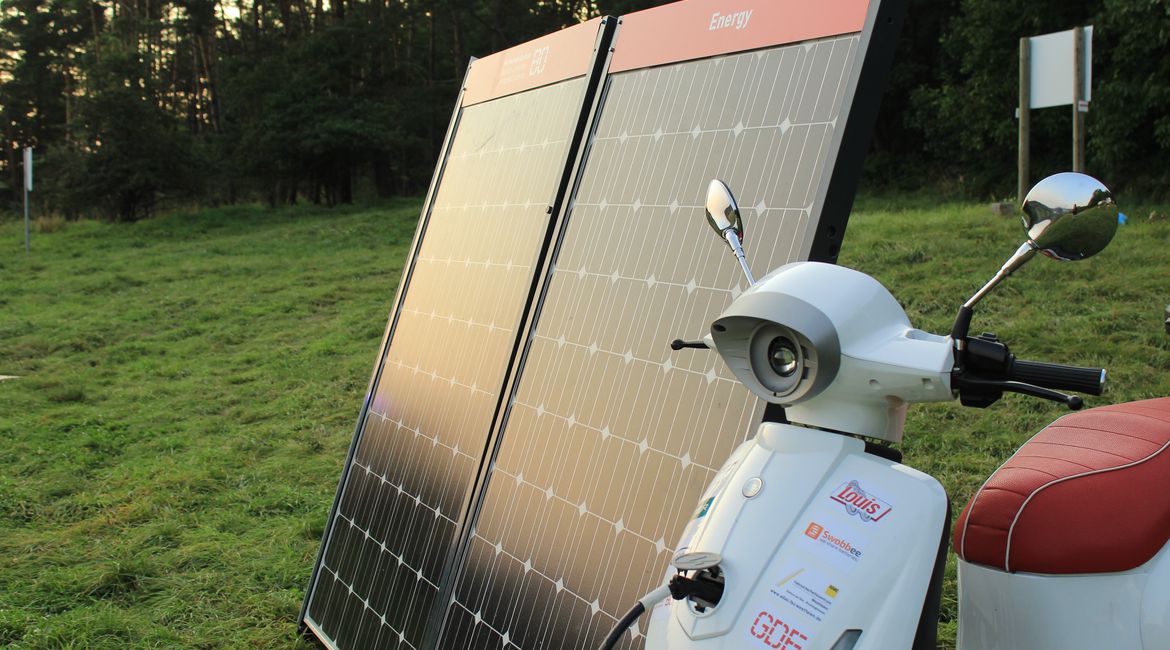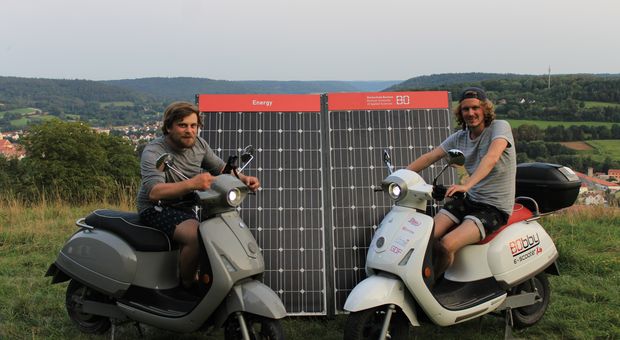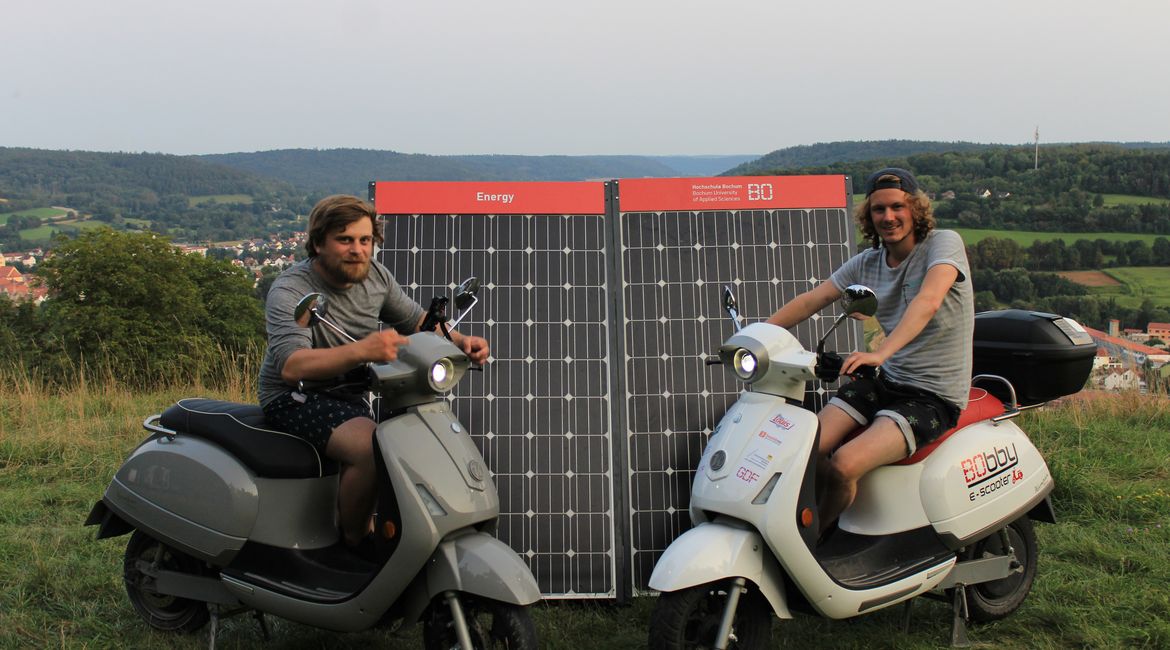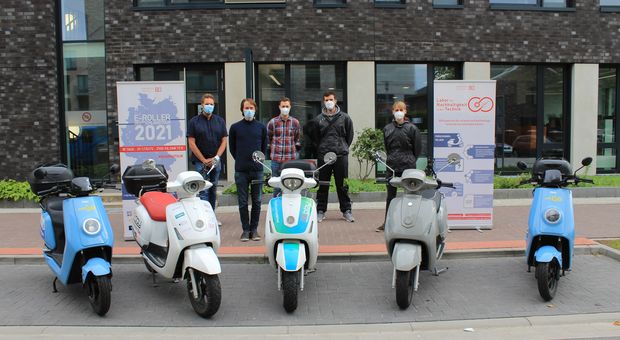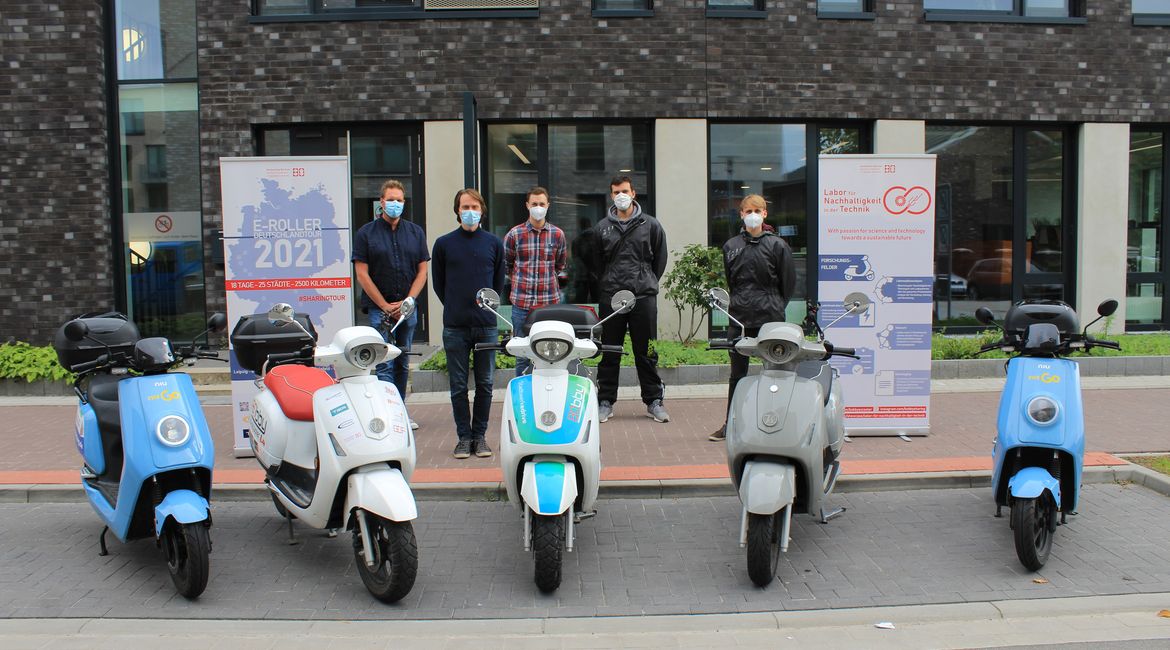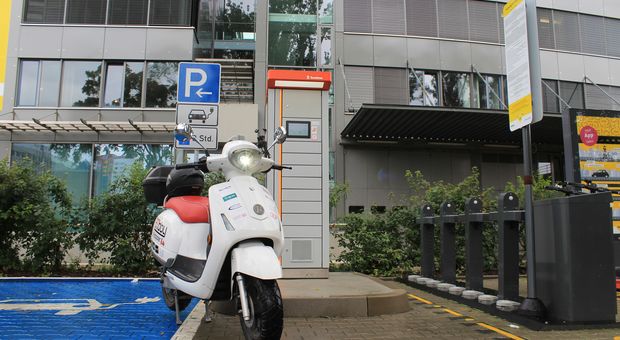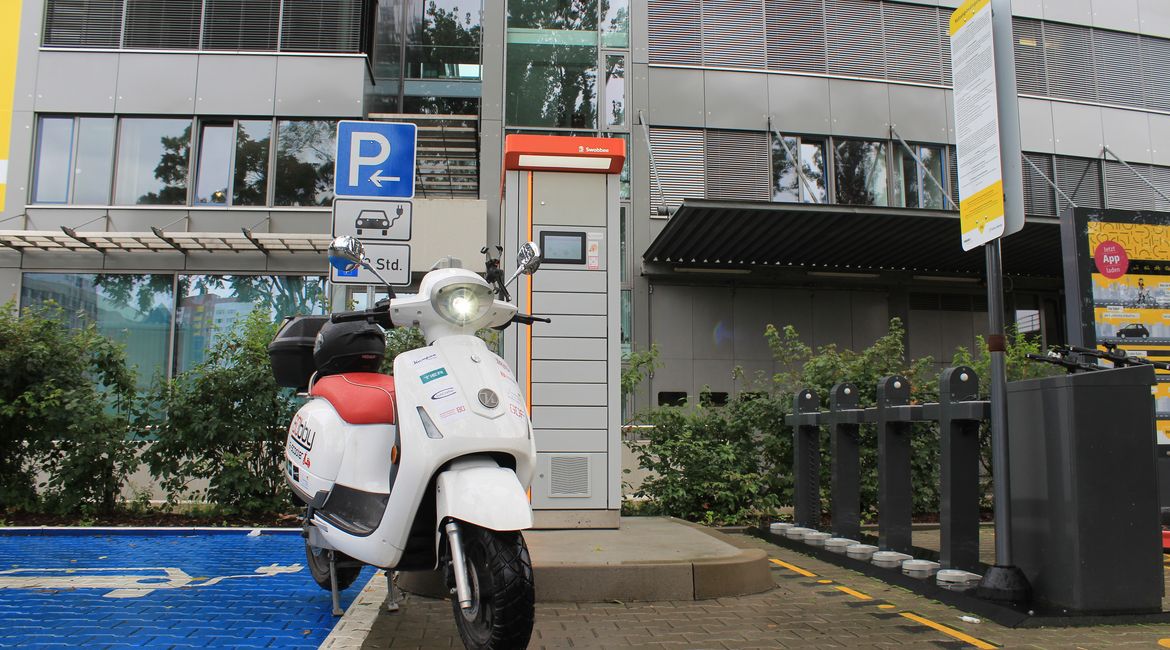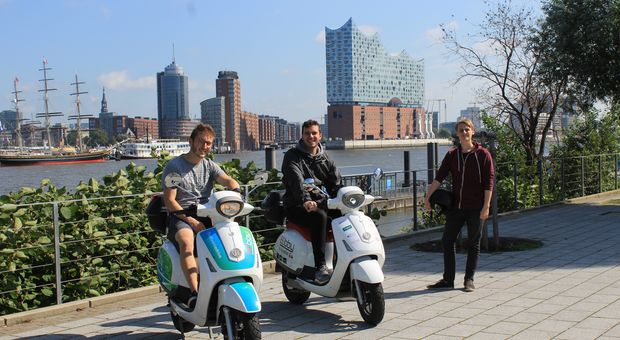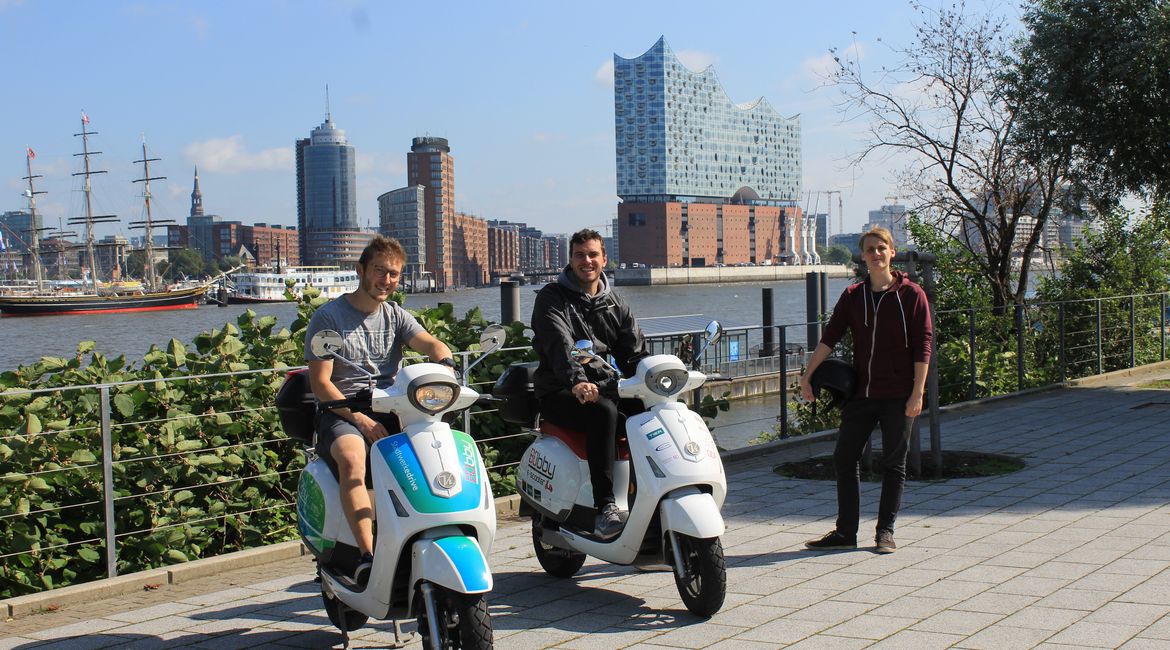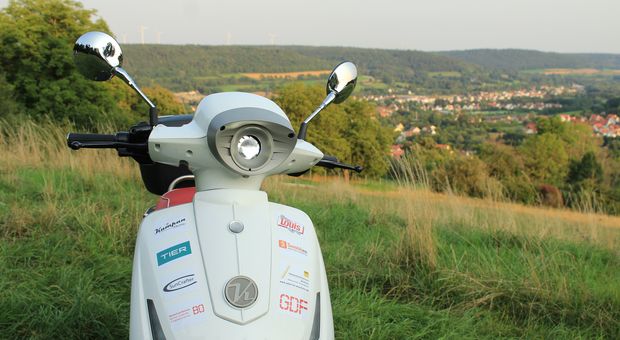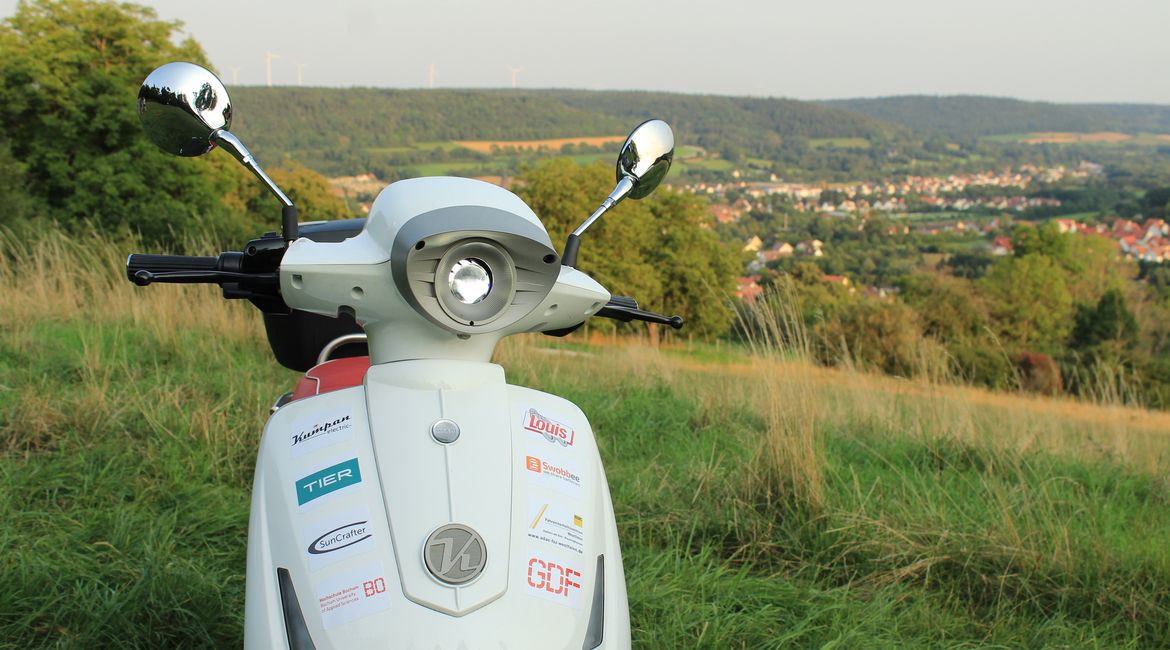Across Germany on e-scooters
18 days | 25 cities | 2,500 km

Sharing offers with electrified light vehicles (micro mobility) will be an alternative to the car in combination with public transport and have a high potential for the urban traffic turnaround. With this vision, the employees of the Laboratory for Sustainability in Technology at Bochum University of Applied Sciences, together with students from the BObby Sharing project study, are taking on a special challenge: in 18 days, over 25 cities and 2,500 km.
This is the distance the students and staff of the Laboratory for Sustainability in Technology will cover with e-mopeds in the summer of 2021 to draw attention to the potential of micro mobility. The team wants to show how light electric vehicles and their infrastructure can be integrated into the cityscape and what contribution they make to sustainability. Along the route, the students met with representatives from city administrations, municipal utilities, universities and sharing service operators.
External content
YouTube Video
We need your consent to show you a video from YouTube here. You can display this (and therefore all other YouTube content on our website) after you have given your consent.
With your consent, personal data may be transferred to third-party platforms. You can find out more in our privacy policy . You can opt out at any time via the Cookie settings link at the bottom of the page.
The tour took place within the BMBF-funded research project "Smart City Sustainable Mobility" (SCiSusMob) of the Laboratory for Sustainability in Technology and the teaching project "BObby Sharing". Under the direction of Prof. Dr.-Ing. Semih Severengiz, the Laboratory for Sustainability in Technology is investigating the ecological potential of micro mobility in the real laboratory and is designing solution approaches for the challenges of the traffic turnaround. The new climate protection law requires greenhouse gas emissions from the transport sector to be reduced by over 40% between 2020 and 2030. At the same time, municipalities face challenges such as land scarcity, noise and air pollution. However, electrification of the passenger car fleet alone is not enough to achieve the transportation transformation; more energy- and resource-efficient and shared forms of mobility are needed. Electrified mopeds offer an interesting use case to analyse the potential of electrified light vehicles. Previous research at Bochum University of Applied Sciences already shows that, in the best case, e-moped sharing even produces lower greenhouse gas emissions than public transport. But micro mobility solutions are not a self-sustaining proposition; they require a renewable energy supply, appropriate charging infrastructure and regulatory measures such as designated parking spaces to help reduce CO2 emissions.
As part of the tour of Germany, the researchers engaged in a dialogue with stakeholders to discuss the ecological potential of novel forms of mobility as well as their suitability for everyday use and possible barriers, using e-mopeds as an example. The team learned both on the tour and from the various mobility representatives what improvements contribute to user-friendly micro mobility and what role municipalities play in accelerating the transportation transition. For example, the team in Leipzig met with the various actors and users and was able to address the different interests. But also, examples like the scooter sharing in Jena by the Stadtwerke or the Frankfurt providers of Süwag2go brought many interesting research aspects to our work. If you want to follow the journey in more detail, feel free to check out our tour diary:
The team returned from the three-week tour with valuable experiences in their luggage. The time on the scooter, but also the conversations with the actors, set new highlights for the research approaches. In addition, a network was created that the Sustainability Technology Laboratory will continue to cultivate for new project ideas.
At this point, we would also like to thank all the people who supported us and made this trip possible. The students have been able to apply a significant part of the research in practice and are now capable of generating new results with their partners. With the help of the learnings and the new contacts from the first tour, the participants are already considering the idea of a second tour. The reduction of emissions in the transport sector will continue to be a challenge in the coming years, which will require technical innovations and new concepts.
© Alina Dicke


